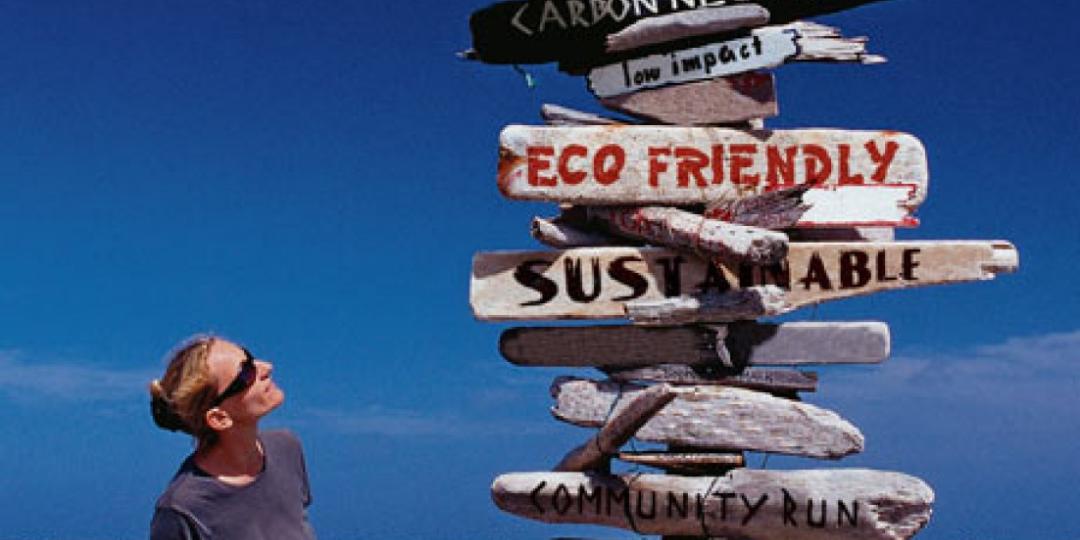‘Greenwashing’ is an important concept to understand if selling or buying tourism products or services that are sold as ‘eco-friendly’.
Greenwashing is the practice of making an unsubstantiated or misleading claim about the environmental benefits of a product, service, and technology or company practice.
Greenwashing can make a company appear more environmentally friendly than it really is, giving travellers the impression that they are enjoying accommodation, meals, wildlife experiences, or any other tourism-related products or activities that are sensitive to the environment, and/or are executed with the environment in mind. Such establishments also often charge higher prices to match their ‘eco-friendly’ set-up.
Companies are increasingly using ‘green marketing strategies’ to enhance their brand image and appeal to the more eco-savvy traveller. Such practices have been strongly criticised by environment and wildlife protection bodies, which slate product and service providers who falsely call themselves eco-friendly.
Greenwashing-savvy travellers
“Travellers are becoming more attuned to ‘greenwashing’ (fake advertising of environmentally-friendly practices) and want to actively see and experience the ‘green practices’ that eco-tourism companies are promoting,” says Tracy Bamber, Chief Sales Officer of Wilderness Safaris.
“The eco-tourism industry will be held to a higher standard in terms of living up to their environmentally friendly promises. Transparency is key and our annual Integrated Report has made huge strides in pushing sustainability and doing so in a transparent and honest manner. It is vital that the industry remains dynamic, flexible and innovative and that sustainable measures are carried out as a collective, and that best practice is shared for the greater good.”
Bamber says Wilderness Safaris’ ‘Travel with Purpose’ journeys focus on making a greater difference, where environmentally conscious guests can get their hands ‘dirty’ – doing rather than observing and seeing where their money is going.
“Things like taking part in game capture experiences, giving back to communities by taking part in community programmes such as Children in the Wilderness, and planting trees to reforest areas like Bisate in Rwanda are all part of this trend of making travel more meaningful. As tourism pressure on ecosystems increases, we expect to find more and more guests travelling to Africa to seek out the private concessions and exclusive areas that offer an escape away from their everyday world,” she says.
On the other hand, “many establishments are not eco-certified but run fantastic sustainable tourism initiatives that are not published on their websites and not included in any initial documentation to operators or agents – unless specifically requested,” says Karien le Grand, Product Development Manager at Tourvest Destination Management.
Know what you are selling
Chris Anagnostellis, CEO of An African Anthology, says that key to ensuring that African tourism product/service suppliers know what they are selling to their customers is first-hand experience of the product, tour, or service. Consultants should also be trained on the product or tour.
Bamber adds that ongoing communication, education and excellent relationships ensure that the right expectations are paired with the correct product. Le Grand concludes: “Be curious and don’t be hesitant to enquire more about any product’s eco-statement but, most importantly, understand which eco-labels are legit and relevant to be able to educate staff and clients.”






















